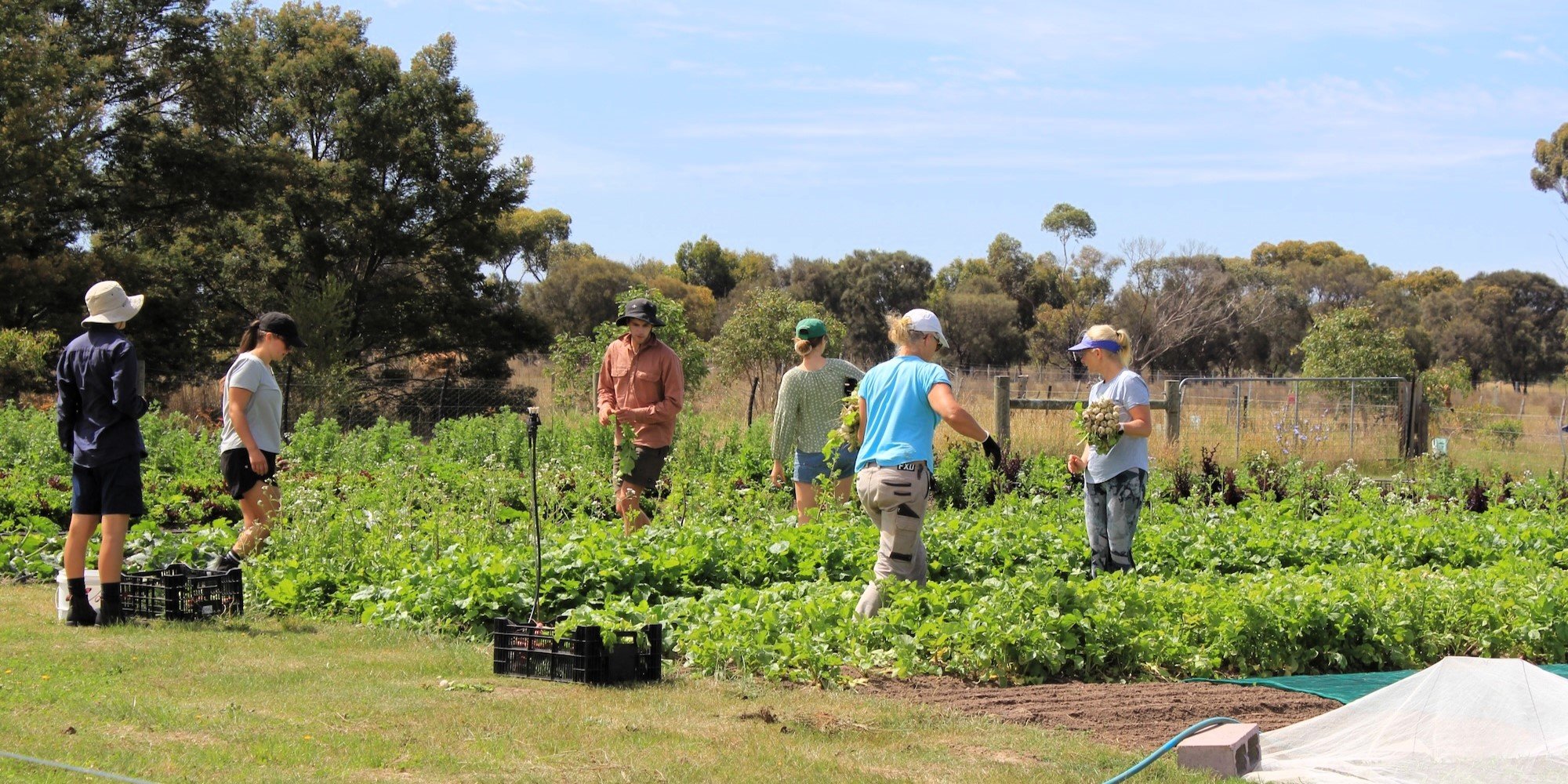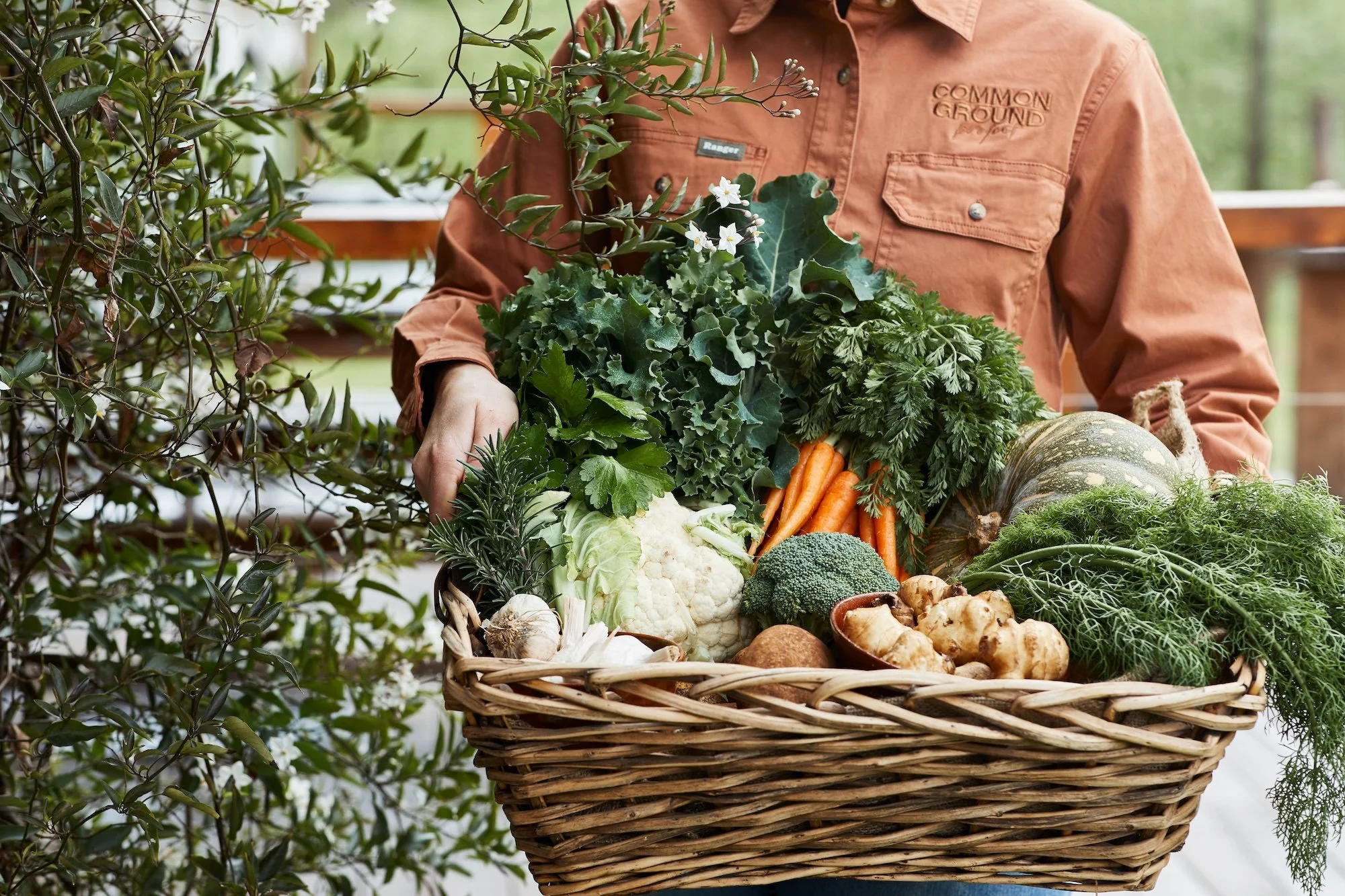How the Common Ground Project is Making Small-Scale Farming Bigger
Photo provided by The Common Ground Project
By Hudson Brown
Article summary
- The Common Ground Project is a social enterprise that uses a more ethical and sustainable food system to grow food and educate the community.
- They focus on employing refugee and new migrant women.
- The project uses a multifaceted approach to achieve its goals, including a cafe, on-site market, educational programs, and partnerships with other organisations.
The Common Ground Project is a small-scale regenerative farm and social enterprise looking to foster big changes. From a welcoming farm-to-table cafe and biodiverse plots outside Geelong in Victoria, the organisation delivers educational and training programs, fostering a link between food and community.
Growing resilient crops is only the beginning for this project. Set in Freshwater Creek, on the fringes of Geelong, this four-acre regenerative agricultural farm and social enterprise has evolved significantly since its launch by prominent restaurateur Nathan Toleman in 2019.
First conceived as a space for chefs to plant and harvest produce while undertaking wellness activities, the pandemic cut short this mission.
Yet as tens of thousands of vulnerable people required food relief, Common Ground Project recognised the need to act.
Partnering with several other social enterprises, including STREAT and CERES, the Moving Feast collective was formed to increase the scale and quality of food available.
Taking a step further, the collective employed refugee and new migrant women living across Geelong to help make these meals culturally appropriate.
“What the pandemic brought forth for us was how food, food culture and food security are all linked,” says Felicity Jacob, CEO of Common Ground Project.
“People like to think food banks are over there giving relief and farmers are over here selling to restaurants and high-end consumers. But we want to understand what it looks like to bridge that gap.”
Volunteers. Photo provided by The Common Ground Project
Today, this social mission continues alongside the growing popularity of regenerative farming practices. Following low-intervention techniques, like minimal tillage and soil disturbance, Common Ground Project is steadily returning the surrounding dry and overgrazed 40-acre property to a biodiverse environment.
Here, the crops are strong enough to resist pests and disease without needing added protection from harmful chemicals.
“This is a small-scale farm, but it’s here to educate and empower people wanting to learn and potentially become future farmers or just understand where and how food is grown. We’re trying to showcase how farming and nature can exist together again,” she adds.
However, reaching this goal is only possible if the Common Ground Project is around to achieve it. And unfortunately, vegetables – regeneratively grown or not – are sold with razor-thin margins. Instead, the farm funds much of its operations - which now include nine full-time staff - through hospitality and grants.
Photo provided by The Common Ground Project
Meanwhile, community programs dedicated to farming, education, training and employment contribute to its social and financial goals.
The on-site cafe is a natural focus. Built from recycled shipping containers and reclaimed materials, it was a hatted farm-to-table restaurant as recently as 2023.
But when its operators decided to move, a strategic decision was made to return the space to a relaxed cafe, providing a better fit for locals and its staying grounded ethos.
This eight-week program has helped almost 40 refugee and new migrant women adapt their skills to the Australian workforce.
“Instead of fine dining being the core concept, now the cafe is our community hub, which we can elevate when we want,” Jacob says, explaining how the space regularly hosts pop-up dinners, catered weddings and forums.
“If we can make a profit from those, it single-handedly supports another training program or farm maintenance.”
Photo provided by The Common Ground Project
Reimagining our existing food system is central to the Common Ground Project. In 2022, it partnered with VicHealth to become one of seven ‘Future Healthy Food Hubs’.
Through a weekly on-site market and veggie boxes, this central distribution point supports sales of the farm’s produce alongside products from 17 other emerging farmers in the Geelong area. By assisting with cold storage, aggregation and supply, Common Ground Project’s Food Hub fosters a healthier food system for growers and consumers.
“If someone's never been here, they might think it still looks pretty basic – but this is five years and millions of dollars of investment,” Jacob notes.
“Because we’ve got fridge space and staff, we’ve reached a level where we can do the selling for local growers. Farmers’ markets are awesome but labour-intensive, particularly for small family farms.”
Concerns have long been raised about Australia’s agricultural supply chain, with the domestic supermarket sector one of the least competitive in the world.
With Woolworths and Coles controlling 65 percent of the market, farmers believe this results in a misuse of market power. Now, consumers are increasingly interested in learning about other models that address at least part of this “broken system.”
Photo provided by The Common Ground Project
Previously working on farms in Japan, Jacob found inspiration in michi-no-eki, or roadside stations, which serve as council-run information hubs and distribution points for locally grown goods.
While the concept only launched in 1991, more than 1,200 michi-no-eki across Japan improve access to fresh produce while supporting small-scale farmers and reducing food miles. After the model proved so successful, The World Bank developed guidelines for other countries interested in implementing similar initiatives.
In South East England, the renowned Knepp Estate showcases how regenerative and rewilding practices can transform a once-failing conventional farm into a profitable business and eco-tourism destination.
Situated on 3,500 acres, the duo behind Knepp returned cultivated fields to a biodiverse state while creating multifaceted income streams through a farm-to-table restaurant, bookable campsites and holiday accommodation.
Photo provided by The Common Ground Project
Fixing issues within Australia’s food supply chain won’t be easy, but as more farms struggle or collapse, Jacob predicts we’re headed towards “a big social issue, not just an environmental one.”
While alternative approaches like the Common Ground Project only form a small part of the equation, driving this conversation forward through tangible support and advocacy helps deliver a better, stronger food system for all.
“It’s the idea that we can train up future chefs and farmers who go out into the world with these ideas and help people understand where our food comes from,” Jacob concludes.
“It’s just about rethinking the connection between food, farming and community.”






